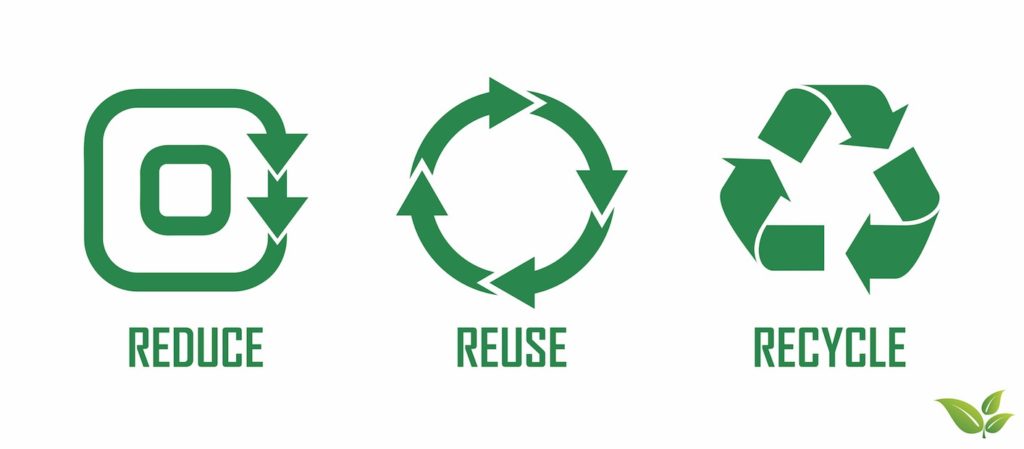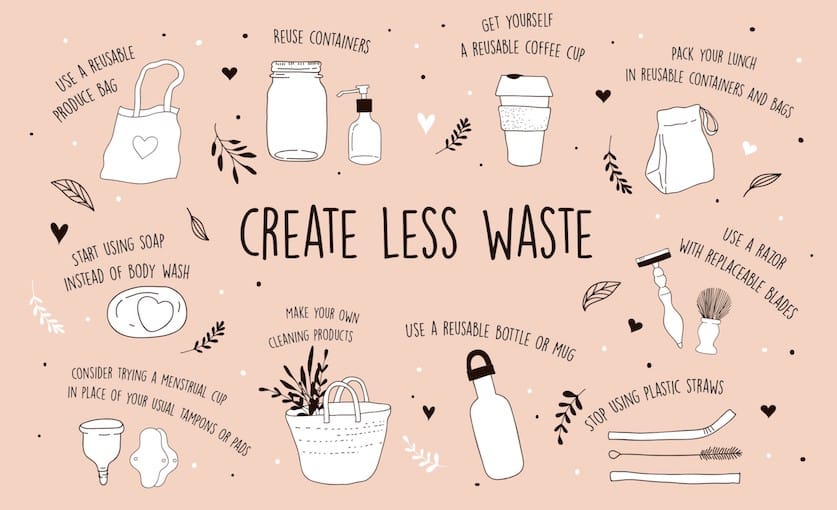As Traditional Recycling Programs Disappear, NCOAE Seeks Alternatives
September 10, 2019
It’s only been a year and a half since China put a halt to accepting the world’s recyclable waste products, yet the effects are being felt in many countries — and in turn, local municipalities — that are scrambling with the challenge of dealing with their own recyclables, including cans, plastics, papers, and glass.
When laws mandating curbside recycling began sprouting up across the United States in the early 1980s, many Americans balked at the idea of being forced to sort their trash. Decades later, it’s embraced by residents in cities and towns throughout the country. In fact, the entire recycling movement has become as second nature to most folks as breathing.
But in January of last year, China quit importing most foreign recyclables, stating it wanted to address its nation’s own pollution issues. So, when you consider that the United States alone used to send 4,000 shipping containers of recycled goods to China each day, you can see the effect this might have on our recycling habits, especially in locations absent of recycling centers and recycling mills of their own.
As a result, the co-founder and director of operations here at The National Center for Outdoor & Adventure Education (NCOAE), Celine Adair, is offering insight and some advice on what each of us can do to curtail the impact of this global event in our personal lives. Specifically, Celine is exploring how the nation’s outdoor, experiential, and adventure-based educators and guides can manage — and thrive — in this new era in the evolution of Reduce, Reuse, Recycle.
But first some additional background into the severity of the problem. China’s decision has the potential to bring the $200-billion recycling industry to a screeching halt, leaving U.S. cities, corporations, and organizations with serious concerns about what they’re going to do with their recycled goods.
The New York Times recently reported that hundreds of recycling programs in American municipalities are on the verge of collapse, with some cities reverting to burying their waste or worse yet, burning it. The notion of this nation of ours taking on the task ourselves is curtailed by the costs involved and the water, energy and time required. Adding insult to injury, with declining oil prices, it has become less expensive to create virgin plastics rather than using recycled materials.
The Environmental Protection Agency (EPA) says nearly 66 million tons of materials are recycled in the U.S. each year, and about a third of those materials were exported to China. With the recent ban, every state in the nation has been affected — with some cities eliminating curbside recycling efforts. In addition, urban recycling centers are closing their doors across the country.
With the demise of a formerly healthy recycling plan for this country, Celine suggests we concentrate on the first two “R’s” in the adage of Reduce, Reuse, Recycle (RRR). For starters, the NCOAE executive says she has already drastically reduced her consumption of food items bought in plastic.
Specifically, she has chosen to focus on the reducingand reusingparts of RRR, and much less on recycling. Here, in her own words, are some of the steps she has taken to date:
- I love Simply Lemonade, raspberry lemonade, limeade and grapefruit juice, but I no longer buy them. Instead, I bought a glass container and make lemonade from a powered form and reuse the glass jug over and over again.
- I always ask for paper bags (if I forget my cloth bags at the grocery store).
- I teach our 8-year-old son to think twice before asking for or buying a plastic toy and why it’s important to ‘not get stuff just to get stuff.’ I remind him about how he can help reduce how much plastic is produced by limiting how much he consumes.
- I buy milk, orange juice and grapefruit juice in cartons rather than plastic.
- I skip the straw and use a reusable water bottle.
- I buy lettuce, kale and spinach in a “bunch” — not in those pre-packaged plastic bin or bags.
- I stopped buying tonic and seltzer water in plastic and instead use glass or aluminum that I can reuse.
- I keep a few Tupperware containers in my car for when I eat at restaurants where leftovers are an option. That eliminates the use of Styrofoam containers that are often offered by the restaurant.
- I have a simple compost bin I made that I use for food scraps. Then I use the soil on my garden.
NCOAE’s close and intentional affiliation with the Leave No Trace Center for Outdoor Ethics inspires us to consider our impact — not only in the backcountry — but in our daily lives. The idea is to try our hardest to reduce our own environmental footprint.
How about you… what are you doing now that recycling is being curbed in many parts of the country? Let us know by leaving a comment below.
TALK TO US
Have any further questions about our courses, what you’ll learn, or what else to expect? Contact us, we’re here to help!


Leave a comment